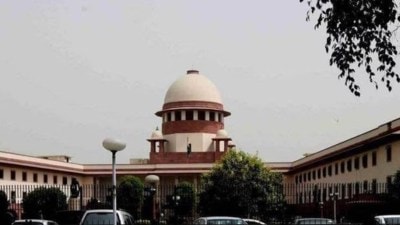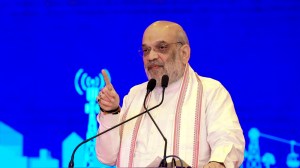Hurriyat leaders’ visit was major CBM: Shaukat Aziz
Notwithstanding India’s contention that Pakistan violated an agreement by inviting Kashmiri separatist leaders to Islamabad and other c...

Notwithstanding India’s contention that Pakistan violated an agreement by inviting Kashmiri separatist leaders to Islamabad and other cities, Pakistan Prime Minister Shaukat Aziz said on Wednesday that their visit was a ‘‘major confidence building measure (CBM)’’, which could help take the peace process forward.
‘‘The Hurriyat visit is a major CBM which had a positive impact in Pakistan,’’ Aziz said in an interaction with a delegation of Indian Newspaper Society (INS), comprising 30 top editors and executives of Indian media and their spouses.
‘‘History will show that the APHC leaders’ visit is a positive thing,’’ he said without referring to Prime Minister Manmohan Singh’s assertion that Pakistan had violated the agreement on Srinagar-Muzaffarabad bus service by inviting the separatist leaders to Islamabad and other cities. ‘‘We have come quite a distance (on the peace process). President Pervez Musharraf also feels the same. We need to show tangible progress,’’ Aziz told the delegation, which is here to hold the 500th meeting of the INS executive committee in Lahore on June 24.
Asked why Islamabad made Kashmir central to the peace process and not economic and trade issues, Aziz said Pakistan cannot shift from Kashmir which has emotional overtones in the country.
On the contentious Baglihar hydropower project in Jammu and Kashmir, he said both sides made ‘‘earnest’’ efforts at solving the issue. Now that it has been referred to the neutral expert under the 1960 Indus Waters Treaty, Pakistan would abide by the verdict of the World Bank appointed expert.
On the Kishenganga project, he said Pakistan awaited the visit of its officials to the project site to decide the future course of action. He said Pakistan also offered the energy corridor to India and would decide which of the gas pipeline projects to opt for. Referring to the Iran-India gas pipeline, he said Pakistan was fortunate to be located near the rich gas reserves in Iran and plans to make use of it even without India.
Asked about the United States’ reservations over the Iran pipeline, he said Pakistan was aware of the concerns and would decide on it in line with its national interests. He had earlier said that a decision would be taken on which of the three pipelines to be opted for, by December this year. —PTI
Photos





- 01
- 02
- 03
- 04
- 05


























